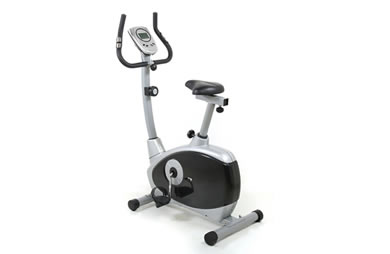|
This spring, we interviewed Dave Ellis, one of the country's foremost sports nutritionists. Now, Ellis is sharing with us a hot topic in youth sports: the dangers of early specialization. As a coach, I work with kids along the continuum. My own kids have been through the USA Hockey ranks on their way up. My oldest is going into college, my middle one is 14 and my youngest is 10, and I've been able to coach them and others along the way and so even though I get to work at the high end of sports, I get to experience the grass roots level through my own kids. There's a real grass-roots efforts afoot right now to de-emphasize early specialization and winning in sports and in turn focus on long-term athletic development and the process behind that as it's relevant to the stages of maturation. There's been a lot of great science out there for years from people who specialize in cognitive and physical development who've been watching athletes burn out at young ages when there was a greater genetic window there for them to perform longer. They've watched large pools of athletes yield very mediocre potential instead of high-end talent. As they backtrack on all those maladies, they've really come up with some realizations that youth sports across the spectrum need to get their heads on straight. One of the dilemmas any family with a young athlete faces the minute they leave the neighborhood YMCA youth league for a more competitive club team is the almost immediate vacuum to consume the young athletes time on a year-round basis. The lure of specialization from being a multi-sport athlete to a single sport athletes is typically fueled by the hope that your child will have a better shot at moving up the ladder from B to A teams and to starter status-and for the short term this may well be true. Any young athlete who is that engaged in one set of motor skills is going to sharpen them and, to some degree, improve performance. But therein lies the dilemma. Those who scout our Olympic talent pools and AA and AAA travel teams at a growing number of elite tournaments designed to showcase talent are seeing some negative outcomes associated with early specialization. Early bloomers typically have an advantage on these AAA teams, and while they dominate the domestic stage with their early maturity and specialization, they are not as competitive on the international stage once other competitors have matured. In fact there is evidence that the athlete who didn’t specialize early and was a little later in maturation might end up being the better athlete! Why you ask? That multi-sport athlete kept on developing motor skills and competitive vision that might have been more challenging in totality than the narrowed focus of the specialized athlete. These multi-sport athletes are hungry to compete as they approach their prime, and because many were late bloomers, they had to be smarter players to make up for their lack of size and strength. So when their bodies do catch up maturation-wise, they often times have a sharper set of skills, and the net result is an athlete who has the tools and the motivation to compete at an elite level versus the burn out early specialized athlete who often seems to have peaked too early and below their net potential. So don’t be surprised when you see national governing bodies of sport at the Olympic level moving initiatives down the competitive food chain that push an agenda for young athletes to mix it up at early ages with a variety of sports that are complementary in nature (somewhat metabolically close to demands) but different enough to demand adaptation to new motor skills and maybe--more importantly--get out of the same gym or rink and outside with a new group dynamic. It’s a refreshing change for everyone in the family, including the parents. A great example of just such an initiative is the Long Term Athletic Development plan that is being implemented by USA Hockey’s governing body (for more information, visit www.admkids.com). One of the architects of this program is USA Hockey’s Kenny Martel, who said: “As a national governing body, USA Hockey has the responsibility to provide the structure and guidance that will promote the health, safety and development of our children in the sport of ice hockey. Despite the good intentions of many people involved of in our sport, the system of development that has evolved in many ways has become contrary to our stated mission. With our American Development Model, USA Hockey is implementing a nationwide LTAD initiative to change the development culture in the sport of ice hockey.” For 28 years, Ellis, a registered dietitian and Certified Strength & Conditioning Specialist, has worked with collegiate and professional teams across the country. He created his three-step Fueling Tactics system years before the government unveiled the food pyramid. His plan focuses on keeping athletes' immune systems up with plenty of produce and healthy oils, selecting fiber-rich starches and reducing fast-digesting sugars when inactive to provide more energy for training, and diversifying protein sources to promote quicker recoveries.  Ellis has worked with every sport imaginable, from collegiate and professional football and baseball to NASCAR, yachting, weightlifting and even ice skating. Ellis regularly authors columns for multiple publications, including Training & Conditioning and USA Hockey Magazine, and is also a Master Level V USA Hockey Certified Coach. He is often described as a “nutrition coach” because of his ability to motivate athletes to eat well. Were you involved in sports as a kid? Did you "specialize" early? If you have children, do they specialize in one sport or do they play several? |
Popular Entries
More From SparkPeople
|

.jpg)










.jpg)

